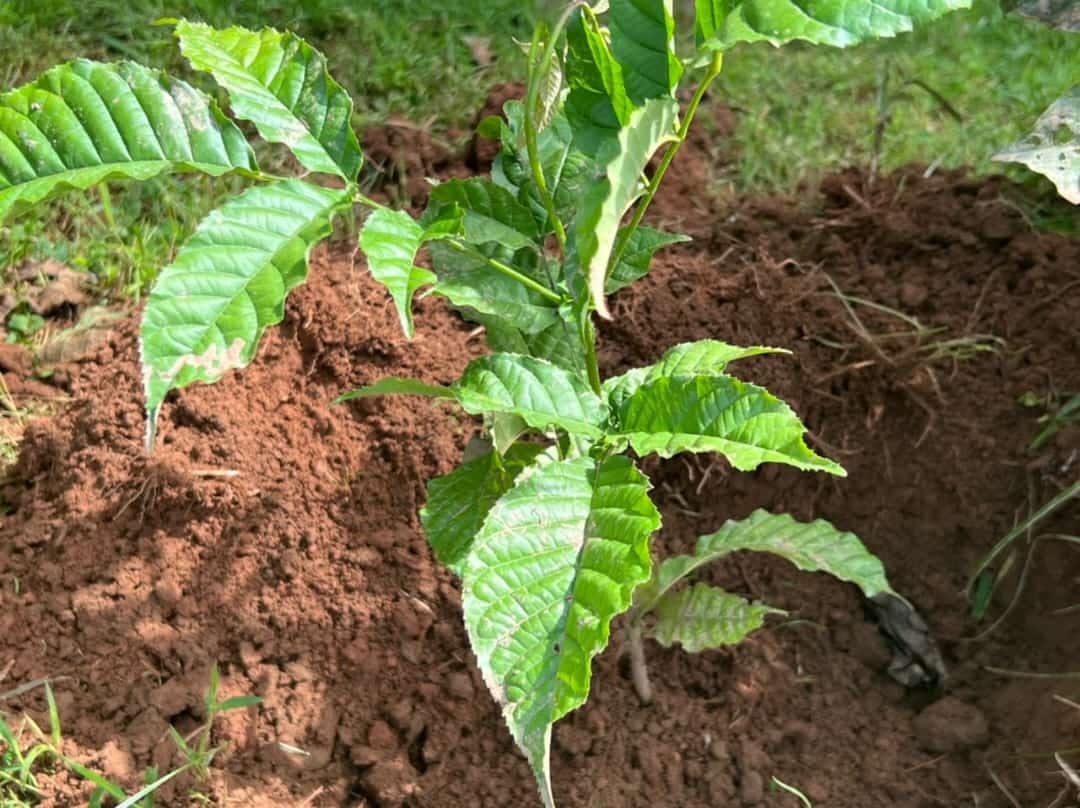B
Read more
+(250) 791 728 026

A consultation meeting and
launch of the project: Promoting Indigenous Trees by Restoring Mukungwa River
Buffer Zone in Nyabihu District
On March 13th, 2024, a
pivotal consultation meeting was held at the Nyabihu District meeting hall,
drawing participants from Nyabihu district, Rugera, and Shyira sectors.
This gathering brought
together a diverse array of stakeholders, including the Madam Mayor of Nyabihu
district, military and police officials, agricultural and forestry officers,
environmental protection officers, and youth representative.
The meeting commenced with
a warm welcome from SHEMA Serge, the founder and Executive Director of Wildlife
Conservation Initiative (WCI), who introduced the attendees to WCI's mission
and insights on collaborative project between WCI and Terra Fund Afr100, titled
"Promoting Indigenous Trees by Restoring Mukungwa River Buffer Zone in
Nyabihu District" and asking mayor Madam Mayor of Nyabihu district a floor
to present the project.
With exceptional
hospitality, the Mayor of Nyabihu district extended a warm welcome to Wildlife
Conservation Initiative, introducing personnel from Nyabihu district, as well
as representatives from the Rugera and Shyira sectors, and graciously offered
them the opportunity to present their project.
Following this
introduction, SAFARI Claude, co-founder, and restoration project manager,
presented the project's objectives, methodology and benefits to local community
The project aims to
preserve indigenous trees to safeguard the Mukungwa riverbank against erosion,
enhance water quality, and create habitats for endemic species”.
Through local community
engagement, the project seeks to raise awareness about the importance of
preserving indigenous trees and their ecological significance in maintaining a
healthy buffer zone along the Mukungwa River.
Over the course of two
years, a total of 70,000 trees will be planted, comprising 59,500 indigenous
trees and 10,500 agroforestry trees across a 104-hectare area. The project will
utilize restoration techniques such as riparian and agroforestry approaches,
with a targeted survival rate of 70% facilitated by local community engagement
and digital monitoring.
Moreover, the project aims
to create 109 jobs and empower 1,000 community members, particularly women,
youth, and small-scale farmers. Stakeholder breakdowns reveal a commitment to
inclusivity and sustainability, with a focus on supporting small-scale farmers
through initiatives such as beekeeping projects and egg hatching machines.
Looking ahead, the project
aligns with the goals of Nyabihu District, promising environmental rejuvenation
and socio-economic empowerment. The support and collaboration of Nyabihu
District authorities are crucial for the successful implementation of this
endeavor.
During the meeting,
stakeholders expressed positive feedback, highlighting the project's
scientifically validated methodology, its leadership by youth, and its
demonstration of restoring indigenous trees while safeguarding cultural
heritage and history, as well as addressing erosion concerns.
Stakeholders actively
contributed insights and posed questions, fostering a collaborative atmosphere
aimed at achieving project success. Taking into account feedback from
stakeholders, it is imperative to incorporate Grevelia robusta among
trees designated for planting.
Moreover, engaging local
leaders in the process of selecting beneficiaries and delineating the
boundaries of the buffer zone along the Mukungwa river is crucial for
effectively managing potential conflicts.
In conclusion, the Mayor
of Nyabihu district expressed heartfelt gratitude to Wildlife Conservation
Initiative for the impactful project and emphasized the importance of
collective efforts in achieving shared objectives.
The Mayor warmly embraced
the project, emphasizing the need for its expansion to cover a broader area to
mitigate Nyabihu district's struggles with landslides, erosion, and other
natural disasters.As she aptly remarked, "Being together, everything is
possible".
Key Takeaways and Outcomes
(i)
Collaborative Stakeholder
Engagement: The consultation meeting demonstrated the power
of bringing together diverse stakeholders, including district and sector
officials, community representatives, and environmental experts, to discuss and
support restoration initiatives. Other champions could learn from this approach
by prioritizing inclusivity and collaboration in their own projects.
(ii) Clear project objectives and benefits: Wildlife Conservation Initiative (WCI) effectively
communicated the objectives and benefits of the project, emphasizing the
importance of preserving indigenous trees for erosion control, water quality
enhancement, and habitat creation. Champions can learn the importance of
clearly articulating project goals and their broader environmental and
socio-economic impacts.
(iii)Community
engagement and empowerment: The
project's focus on engaging and empowering local communities, particularly
women, youth, and small-scale farmers, is commendable. By involving community
members in restoration activities, the project aims to create jobs and foster
environmental stewardship. Other champions can match this approach by
prioritizing community involvement and capacity building in their own
initiatives.
(iv) Scientifically validated methodology: Stakeholders praised the project's scientifically
validated methodology, which combines riparian and agroforestry approaches for
effective restoration. This demonstrates the importance of evidence-based
practices in conservation efforts, inspiring other champions to prioritize
research and data-driven decision-making.
(v) Supportive Government Leadership: The Mayor of Nyabihu district expressed strong
support for the project and emphasized the importance of collective action in
achieving shared objectives. Other champions can seek to build similar
partnerships with local authorities to enhance project sustainability and
impact.
(vi) Continuous Feedback and Adaptation: Stakeholders provided valuable feedback during the
consultation meeting, highlighting the importance of incorporating local
perspectives and addressing community concerns. Champions can learn from this
example by prioritizing stakeholder engagement throughout the project lifecycle
and being receptive to feedback for continuous improvement.
"Check out our informative video of A consultation
meeting and launch of the project: Promoting Indigenous Trees by Restoring
Mukungwa River Buffer Zone in Nyabihu District via the link: https://youtu.be/GhjuJ5fhsN8?si=mRjNReRmyIsZLGQx"